Frostpunk developers on hope, misery, and the ultimately terrifying book of laws
11 Bit Studios tell us all about the inspiration and development of their grim city-building survival game.
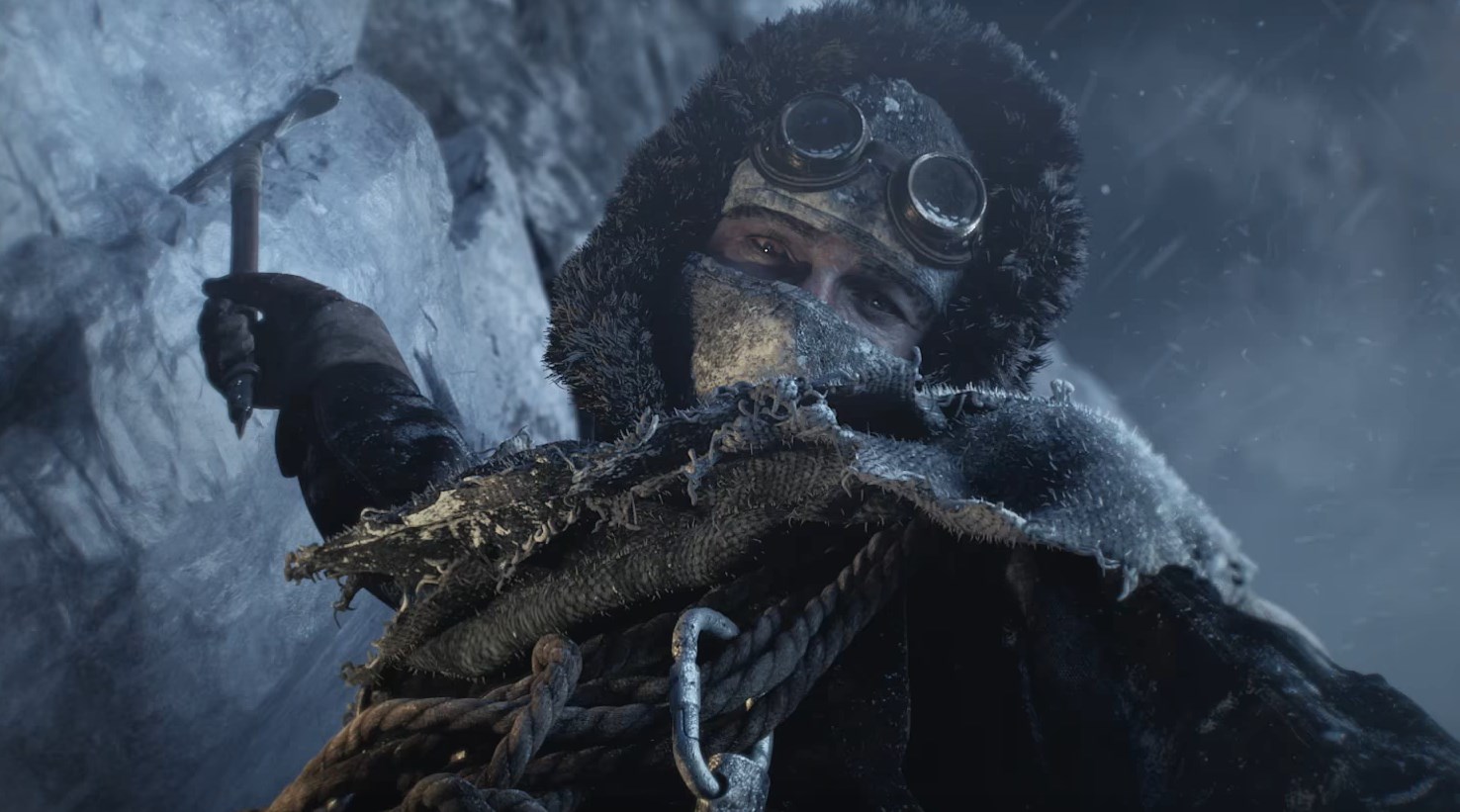
Frostpunk, developed by 11 Bit Studios in Poland, blends city-building, crisis management, survival, and society simulation in a grim and frozen apocalypse. It's a tense and harrowing experience that explores just how far you'll go to protect your citizens and give them hope for the only thing more uncertain than the present: the future.
I spoke over Skype with Frostpunk lead designer Kuba Stokalski, project lead and lead artist Łukasz Juszczyk, and senior designer Marta Fijak about the game's development, art, the book of laws, and real-world inspirations.
PC Gamer: So I guess I’d like to start with the original idea for the game, the inception of the game. What was the first spark that eventually led to Frostpunk?
Kuba Stokalski: Well, I think it was actually a couple of things coming together. It was on the one hand—This War of Mine was a really big hit, and after it landed and it changed basically the playing field for the company, we knew that we would have to come up with something that… we knew we didn’t want to do a sequel. Because This War of Mine was a special kind of experience, but at the same time we felt that this was something that resonated with the players, the meaningfulness of the themes in the game and the seriousness of the tone, so we were looking for things that would go along these lines.
But at the same time we wanted to make a bigger game and follow up with something on a bigger scale, and basically things converged on merging survival gameplay with city building gameplay, and what we knew from the pretty early days of the project was that we wanted to make a game on a bigger scale, in terms of these serious themes, and that meant going up from the scale of individuals to the levels of societies. So, there’s this concept of society survival and basically asking the questions of the limits of the boundaries that people are willing and unwilling to cross when faced with questions of survival on a societal scale, was what drove the project from the very beginning.
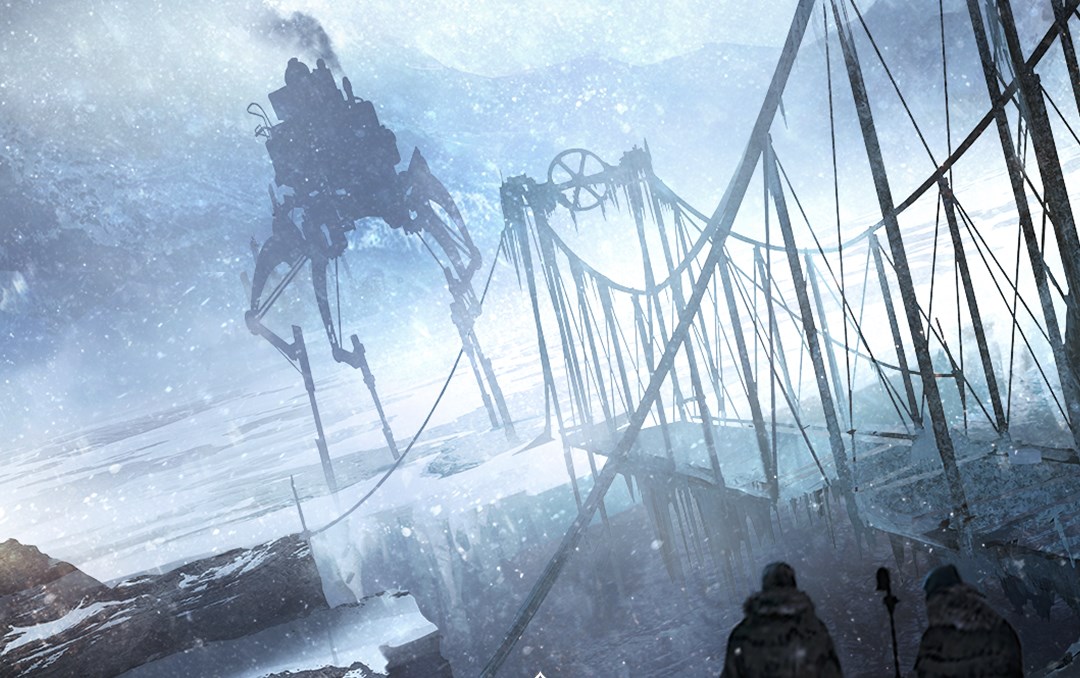
And with all these different elements in it—like you said you’ve got survival, there’s resource management, there’s society management, it has a bit of a strategy feel to it too at times—how was it trying to balance all these different elements so that one doesn’t completely overshadow the others?
Kuba: The trick is that we are not… well, that is actually a staple of 11-Bit Studios in that we aren’t really that concerned with genre, or the specifics of it. We know we want to make a game in the vein of a genre that we have in mind, but what we are really after is an experience, and the feelings and emotions that the player gets out of playing the game, and that’s what drags our decisions.
The biggest gaming news, reviews and hardware deals
Keep up to date with the most important stories and the best deals, as picked by the PC Gamer team.
So whether we are designing a simulation system or content in the tech tree or society decisions in the book of laws or coming up with the art style, we are always asking ourselves whether these things converge on the central themes of the game, like asking the big questions about survival, of the limits of survival and what a society is capable of. So it’s obviously an iterative process and heavily so, and this unique blend comes out of it, in service of the themes of the game, not the other way around.
I found it interesting that, usually from a city-building standpoint where you have citizens, you do kind of get a feel for their happiness. You guys went with two different meters: the hope meter and the discontent meter, and these are influenced by different things—they can both be full and they can both be empty. What made you decide you were going to use these two specific meters for the society's feelings and feedback?
When we did research about survival in harsh conditions, and what drew people, what makes them survive except for the physical capabilities, we found out that the most important thing was hope.
Marta Fijak, senior designer
Marta: From the very beginning, we knew that we wanted to have that society aspect, to show the mood of the society. So the discontent came quite naturally, because it comes from citizens' needs and we knew that we wanted to represent the society as a group of individuals that create the whole thing, and not an abstract society model. So the discontent part was quite natural in the process of creation of society.
And about the hope—it actually came from the research. When we did research about survival in harsh conditions, and what drew people, what makes them survive except for the physical capabilities, we found out that the most important thing was hope, because we read stories about mountain climbing [expeditions], about accidents, when people were able to crawl down from high altitudes, almost dying, but they had hope that they would survive.
So this was a theme that was reoccurring when we did the research process. So this is why we put it in the game because our people don’t have to just survive like animals, they need a reason to survive and this is what hope represents, and it played well with the themes that we wanted to show.
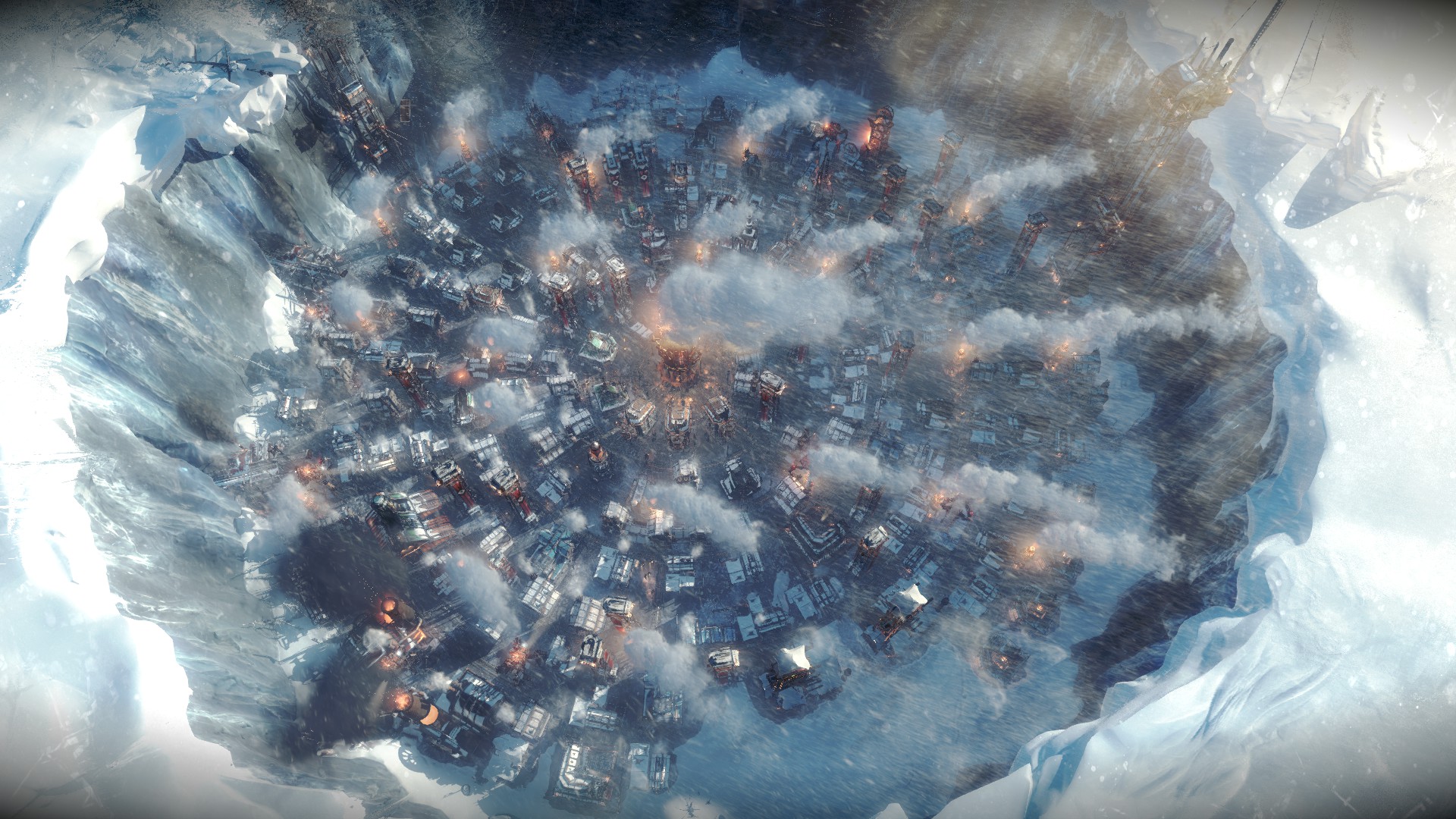
Typically with city builders, a lot of them have scenarios where you have a certain situation and you need to get your way out of it, but they typically have an endless, open-ended format. When you were designing Frostpunk, was it always your vision that it would have an ending, that you would have a set period of time to accomplish your goals or did you consider at some point it could be an endless type of game too?
Kuba: Actually, it wasn’t really set in stone for quite a bit of development. We always knew that we wanted to tell a story about survival, so in general you have to survive something in the end, right, if it was about survival? But we weren’t really… well, the decisions about whether it was an open-ended or closed-ended type of experience wasn’t really set in stone, and it actually came out really naturally from the format that we arrived at through iteration.
We knew we wanted to end this the way a novel ends, not the way a typical sandbox experience of other city-builders is like.
Kuba Stokalski, lead designer
Basically, we had these different episodes of the main story scenario—that the first is focused on the basic survival, the second one was more about the social fractures that sometimes pop up in difficult conditions and how you as a leader can tackle them. And then we had the ultimate test of the storm, and we felt that when you played through such a sequence of events, basically making tough decisions along the way, and after the final storm we had basically, "OK, so the sun comes up and it’s getting warm again and here: go build all these buildings." That was actually anti-climatic, so it was in contrast to the experience of surviving something tough by making tough decisions, and by making sacrifices. This kind of climax didn’t work, so we knew we wanted to end this the way a novel ends, not the way a typical sandbox experience of other city-builders is like.
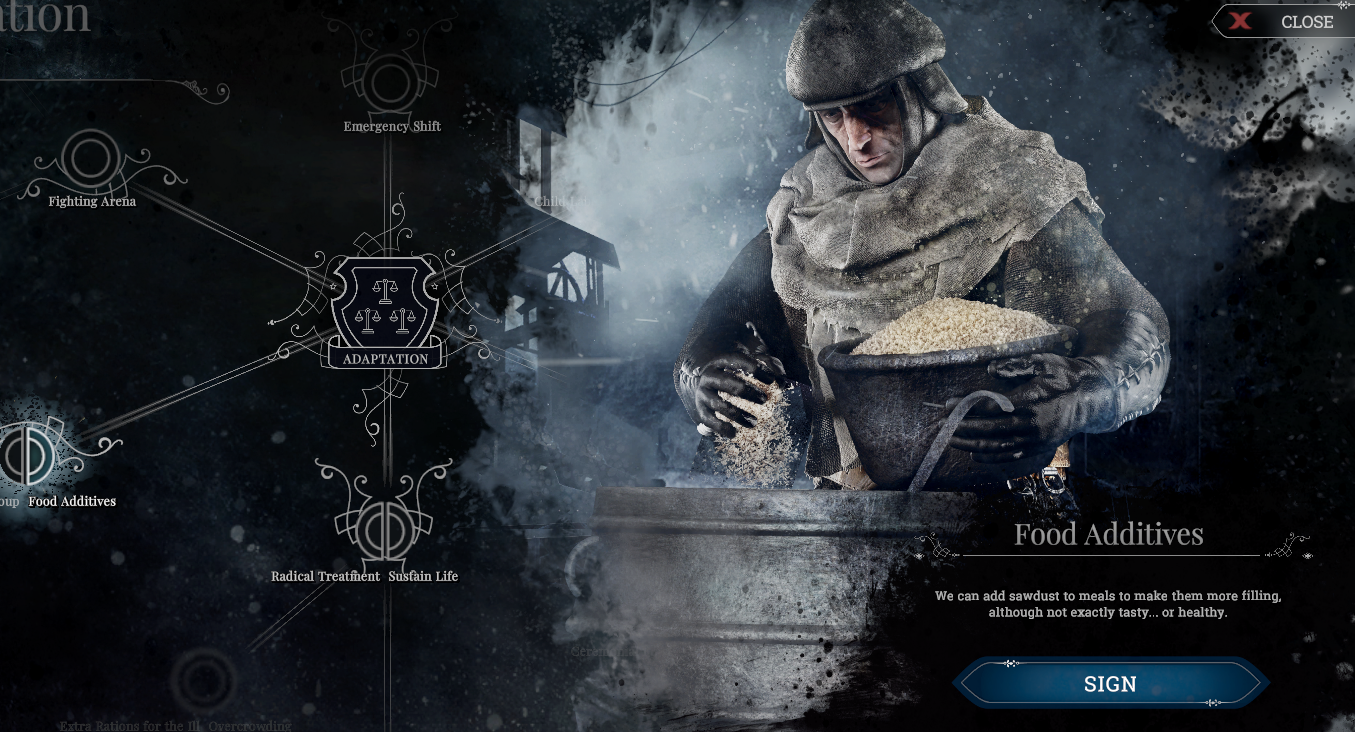
If we could talk about the book of laws—I found this kind of an interesting system in the game. How did you start coming up with those and how did you pick those particular laws?
Marta: So, from the very beginning of development we knew that we wanted the player to be able to make up some decisions, to decide what to do, which way to go and how to shape this society. But in the early builds, it was coming mostly from your people, so during the playtime, a question would pop up because there was a situation and you as the leader should react and pick which law you want to enact.
Over a longer period of time, you see that the sum of those parts makes something bigger and something more terrifying.
Marta Fijak, senior designer
And during the iterative process we found out that this is not the best way for the player because there is no player agency. He or she cannot decide when he or she wants to make some laws, so from that point we knew we wanted to address that and started iterating on the book of laws. And what the book of laws gave us, it was an opportunity to put those laws in a sequence, and that was quite important because one of the topics we wanted to cover was creeping normality or the boiling frog syndrome, so that situation is that you are enacting small laws that [don't] change much and are not extremely drastic, but over a longer period of time, you see that the sum of those parts makes something bigger and something more terrifying. And this is a situation that you can observe in life when a couple of total institutions or total situations are born, they are just going through that process of creeping normality.
So this is how we picked the laws, especially in the purpose tree, that all of them are put in order and every player should have a line in their head. We didn’t put it there specifically because we don’t want to charge the player from a moral standpoint that this is a personal measure of belief, but every law should be a little bit more than the previous one.
And for the adaptation tree, most of it came actually from gameplay and through historic research, like with sawdust in food—that was a thing actually done in Russia and it’s still done in many places. The same was for the kids working [in the] Victorian era, so it was only natural to push that kind of law. So this is how we build that adaptation tree, but it also had in mind that little bit of creeping normality factor.
So kind of like a slippery slope situation where I’m making maybe a small compromise that’s against my personal morals or beliefs because I’m hoping it will achieve this goal, but that can lead to bigger and bigger compromises on my part as a leader.
Kuba: Yeah, that’s basically how Totalitarian states are born—what the 20th century showed us and what’s still happening around the world in many places, and this is actually the small steps towards really unpleasant consequences, is what we wanted to show here.
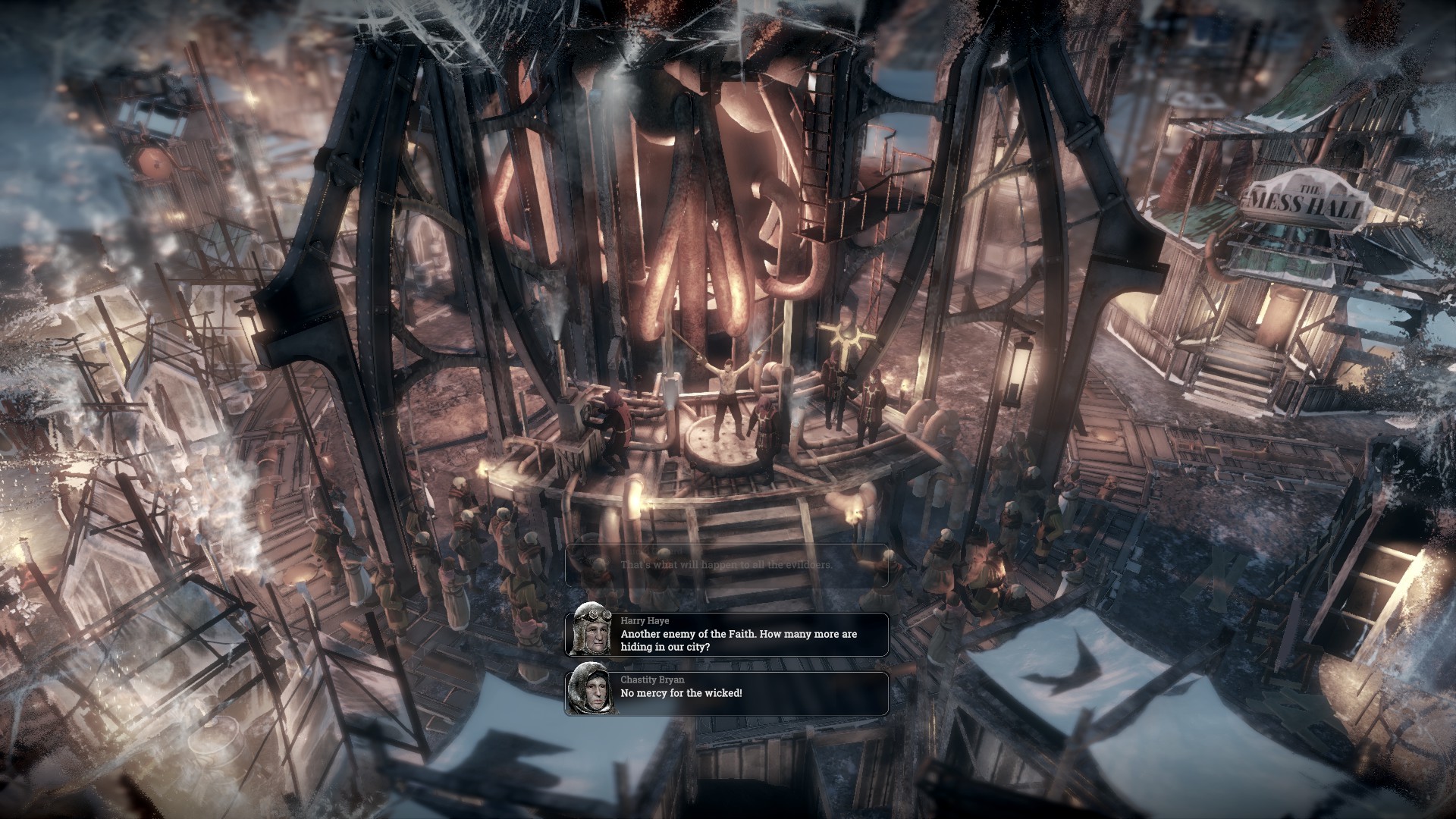
Yeah, at the end of the game I kind of felt myself feeling a little defensive. The game will not really judge you but point out some of these choices that you made and that they weren’t really great ones, but I felt myself feeling I should justify it because, like, “Hey look at this end result, I survived, I saved people’s lives." And it was kind of an interesting feeling to be trying to defend a lot of the pretty awful things I did.
Kuba: Yeah. It’s a really nice thing that you say that, actually! (Laughs) We actually get a lot of feedback now, post-launch, and one of the [comments] was that when you get the end log sequence of the time-lapse of your city, and there’s a commentary on your choices, and there’s a question in one of the versions of the end logs that’s like: "Was the city worth it in the end?" And many people came up with “Well, this seems like a pretty stupid question to ask because well, look: everyone survived, and what’s the other choice?" Actually, that [question] sometimes pops up online, that the question that this game asks is whether there are situations when it's worth surviving at all rather than sacrificing your humanity or your higher values.
But we don’t want to answer that question. Exactly what you just described is what we wanted to basically ask, and make the player think for themselves.
If we can talk some about the art—it’s a really beautiful game in this kind of grim way. I wondered if we could talk about the art, the 1800s kind of setting and the steampunk influences. What drew you to that particular style of art?
Łukasz Juszczyk: You could think that the Victorian era had a major impact in our references but the truth is, we got most of our influences from the industrial structures as a whole, you know? Of course we get some major architectural guidelines from the Victorian era like some characteristics [of the] buildings or specific window shapes or stuff like that. But you can find cool looking steel bridges everywhere there in the world, you know? So yeah, our biggest inspiration was industrial buildings, [from the] industrial era around the world.
And the choice of the engine used for this game, do you feel like that would work most for the art style or was it chosen for different reasons?
Łukasz: Yes, we work on our in-house engine, and it was a blessing because we did so many tricks, so many smoke and mirror things—for example, building on the [circular map] or maybe if you notice some of the buildings are bending, some are squeezing to fit their construction grid, and that was only possible on our engine. We’ve got specific tools for our specific needs.
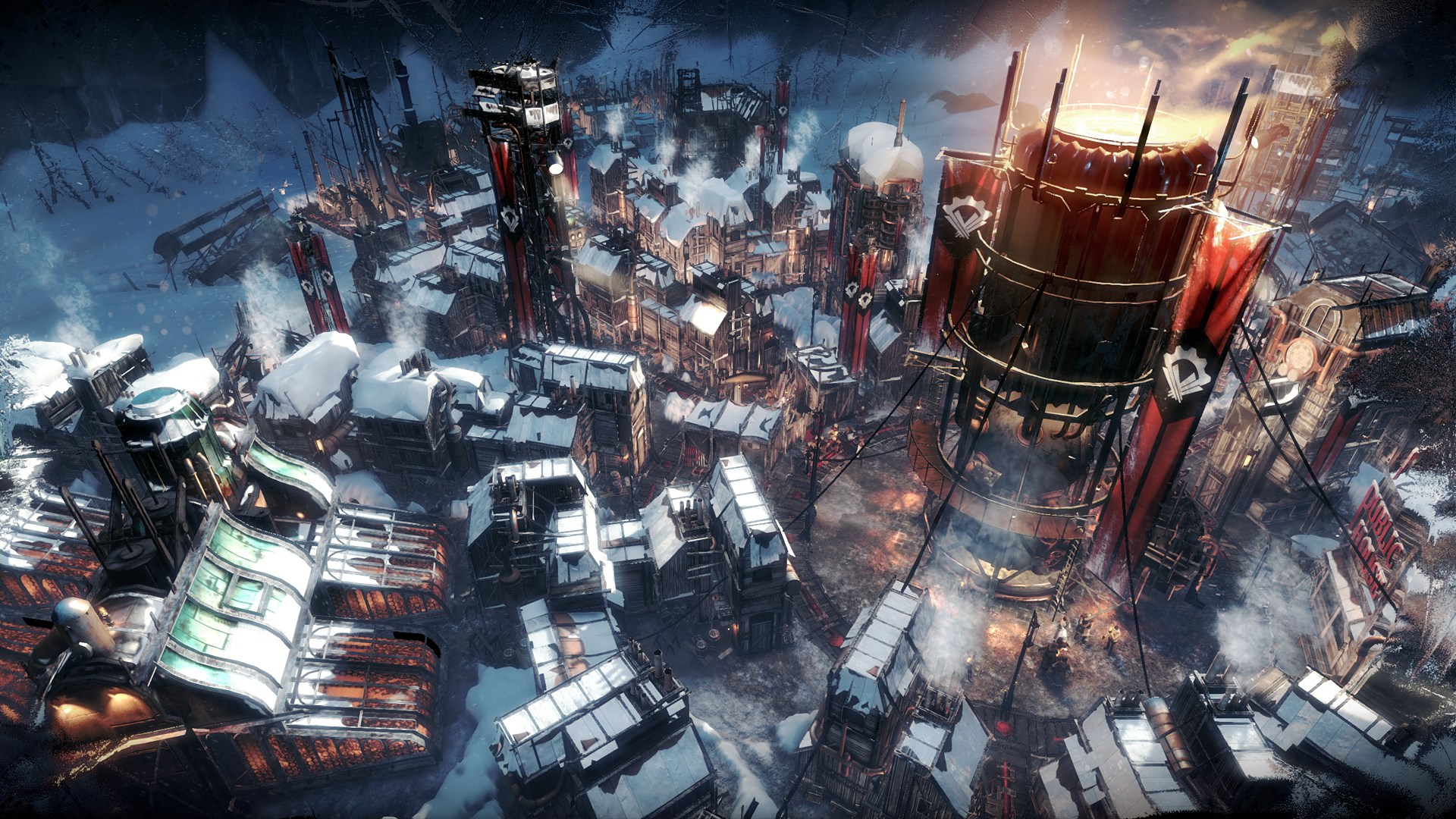
What kind of lessons did you learn from This War of Mine that maybe shaped or influenced Frostpunk the most, would you say?
Kuba: Well, I’d say that both games were about survival but the scale was much different. Coming into Frostpunk we knew that we made one really successful game about serious themes in the general survival type of genre, so we tried to use the same mindsets. But the difference of scale between having three people in your shelter and having 80 people to start with and ending up with hundreds was actually a whole other ball game.
And we really had to do a lot of adapting from that, so I’d say that what we knew thanks to making This War of Mine was general concepts like focusing on the experience, focusing on the themes that permeate the game rather than any particular implementation of a mechanic or whatever there is, right?
So we had the specific type of mindset that we had from This War of Mine that allowed us to, in the end, make this really weird connection of survival city-building scenario type narrative-driven society survival thing that Frostpunk is right now. And because of the mindset that we have thanks to This War of Mine, the experience itself and the themes that we wanted to convey are the guiding lights for us, and not any particular low level decision that we have to make millions of along the whole project.
In terms of the general feeling of both of these games, there’s so much misery, these are not happy people or happy experiences. I found Frostpunk to be incredibly tense and I was very stressed—
Kuba: Sorry! (Laughs)
Ha! No, but, there’s a real appeal in that, in some way to have an experience that is unhappy and miserable and upsetting at times. What do you think the draw is for players to want to immerse themselves in a really horrible situation?
Games are often framed as a series of interesting choices, but what makes a choice interesting?
Kuba Stokalski, lead designer
Kuba: Well, you know it’s been said sometimes about games, that games really are just power fantasies, that you end up being this powerful person or whatever doing unimaginable things, and obviously… we obviously are opposed to that, making the games that we make. But I think there is some truth to that in that in the sense that games allow you to live through scenarios that are, thankfully, impossible in real life. But they actually let you play and interact with situations that you would never think of otherwise. And actually pulling through in a difficult scenario like this and having done this yourself against adversity [but] still achieving the goal, I think is actually a powerful experience in and of itself.

Frostpunk is a stressful, stylish, and addictive survival management game filled with incredibly difficult choices. Read our Frostpunk review here.
But actually the more deeper meaning is, what I personally find fulfilling in making these types of games is that I really believe that these games can ask you… or make you think of things other than “What level did you grind today?” or “What cool new bonus stat on your gun you got?” They can actually make you think about things like what really is worthwhile in life, or what is the line that you wouldn’t cross in any given situation, [or] moral dilemmas, and showcase these difficult situations and ask you basically: “How would you behave?”
Actually, one of the design tenets for the game that we have is actually that—obviously, games are often framed as a series of interesting choices, but what makes a choice interesting? And one of the ways we really like by making choices interesting is asking you whether you’re willing to sacrifice some of your morals, your ideals, or making this one step [over] the line, in exchange for a better outcome, goal-wise, [for] your scenario in the mechanics and in your situation within the game.
So these are the types of questions and dynamics that are impossible in other media and we think that are possible here in gaming, and are actually the way forward if we want to talk about games being meaningful entertainment. So basically, things that are worth your time and making you look at the world in a different light.
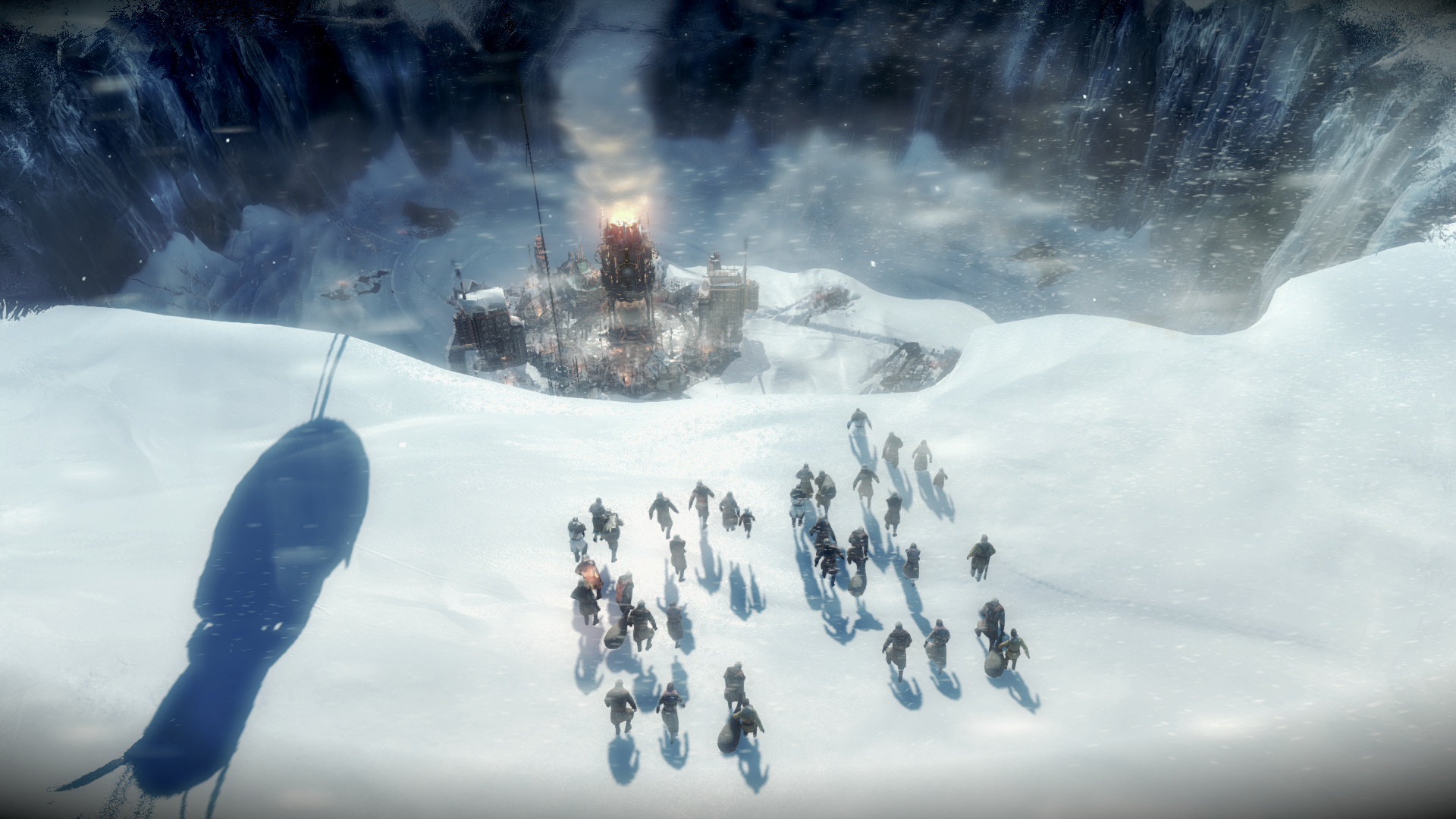
Yeah, and I think Frostpunk touches on some current real-world concerns. In probably two or three of the scenarios refugees are really a major issue, in fact one of the scenarios is a real challenge with the amount of refugees coming to the city. I think obviously there’s climate change themes… were you hoping to maybe give people something to think about in respect to these current world topics?
Kuba: Yeah, definitely. The inspirations are all around us and basically what we think makes for interesting choices is whether these choices are relevant to you as a person, and one of the ways of making them relevant is actually making them contemporary in a way. It’s not necessarily the fact that it’s a fantasy scenario in a fictional world, but the same types of dynamics… we really want to make the game about people and dynamics of societies and communities and what happens when you try to lead in one way versus the other, and this is basically the way for us to comment… well, not comment but make you, the player, comment through the choices you make in the game on contemporary problems in today’s world.
A major inspiration for us was the 19th Century. It was a period of social stratification with masses of the workers, the Luddites rebellion against the machines, and what happens today with artificial intelligence taking jobs, basically. These are really contemporary topics and we enjoyed exploring them because we think they are worthwhile, they are important, and to get people to think about them through our game, that’s really a cool thing for them and for us.

Chris started playing PC games in the 1980s, started writing about them in the early 2000s, and (finally) started getting paid to write about them in the late 2000s. Following a few years as a regular freelancer, PC Gamer hired him in 2014, probably so he'd stop emailing them asking for more work. Chris has a love-hate relationship with survival games and an unhealthy fascination with the inner lives of NPCs. He's also a fan of offbeat simulation games, mods, and ignoring storylines in RPGs so he can make up his own.